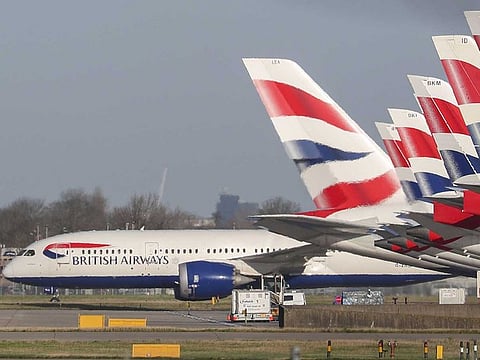Recovery in air travel demand has stalled as second-wave takes Europe, says IATA
Cargo will get a boost in the coming months, said the industry body

The global recovery in air travel demand has stalled as the second wave of the coronavirus hits markets in Europe, the International Air Transport Association (IATA) said.
Passenger traffic growth measured in revenue passenger kilometers (RPKs) in September was down 72.8 per cent, compared to the same period last year. “Clearly, we’ve seen a stalling of the already weak recovery that we’d seen on international markets - domestic air travel markets have been much more buoyant, they’ve certainly shown a willingness to travel,” said IATA’s Chief Economist Brian Pearce during a webinar on Wednesday.
Passenger traffic on domestic flights was down by 43.3 per cent in September, compared to 88.8 per cent for international routes. “But there’s a slowdown visible in domestic markets …. you can see that there’s a very still very wide range of performance between different domestic air travel markets,” said Pearce.
Pearce adds that the decimation of demand in the international markets shows that whatever recovery that occurred in the last few months was “principally within Europe” through air travel ‘bubbles’ established with other countries. “The sharp increase in coronavirus cases has led to renewed travel restrictions, even within that bubble - we’ve seen a decline in September in that market”
Peak cargo season is here
Cargo did much better, with cargo kilometers (CTKs) down only 8 per cent from year-ago numbers. Middle-East carriers also did well, with cargo volumes down only 2.6 per cent from a year earlier.
“We’re about to enter the the peak season for air cargo which is the fourth quarter… typically where there are lots of product launches and of course … looking into 2021 hopefully there will be the need to distribute vaccines, as well,” said Pearce.
In the absence of normal flights, airlines have come to rely more on the cargo side of their business to drive top-line growth.
Capacity crunch
Going forward, airlines may not have enough capacity to meet the growing demand.
“The problem that cargo is facing at the moment is actually a shortage of capacity,” said Pearce. “We’re actually seeing very strong new orders, new export orders for manufactured goods coming out of the business sector … that is actually above pre crisis levels, and is clearly very supportive for further growth”
Sign up for the Daily Briefing
Get the latest news and updates straight to your inbox







